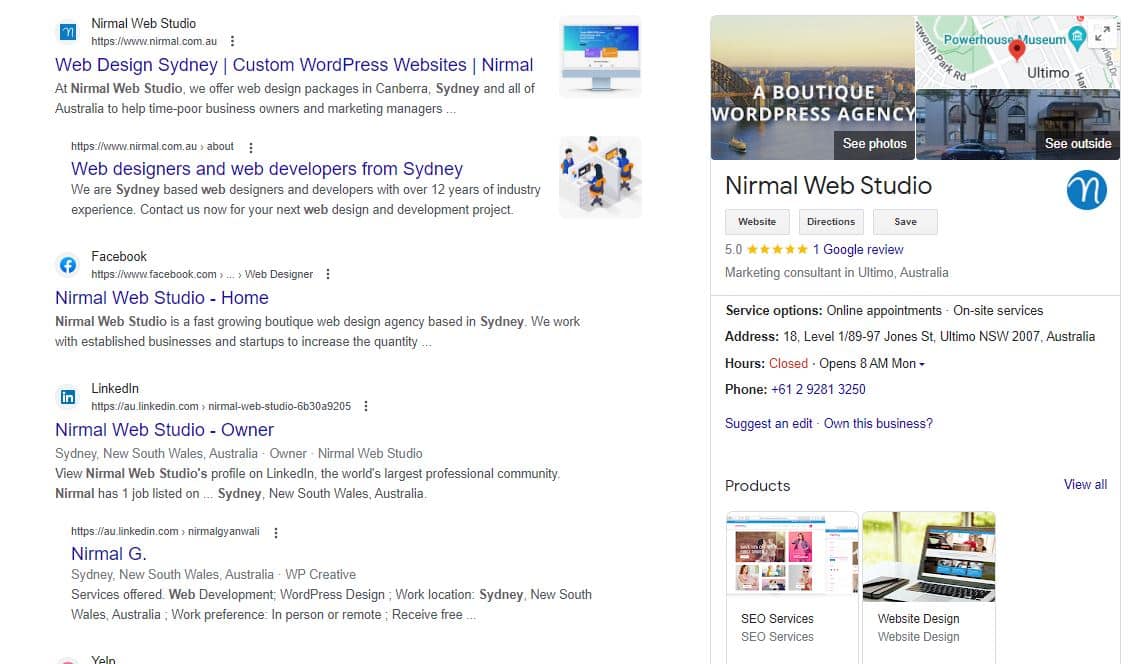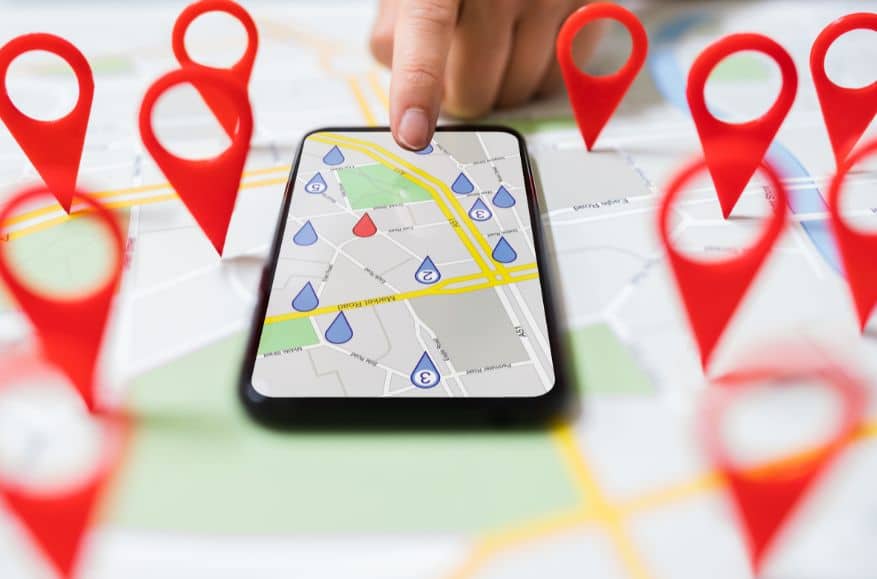Ranking your business in search results has become essential for businesses and especially even more for the local businesses aiming to attract customers in the locality. With the increasing popularity of mobile devices, local searches are only going to increase in the days to come.
If you want a pizza, you will probably search for Pizza near me or something like that and then the local business shows up allowing you to order a pizza. Using phones to search for products and services in your locality is one of the best examples of why local SEO is important. Optimising your website to show up on local search results can boost your business’s online presence significantly, ultimately resulting in more store visits or purchase of products/services.
Table of Contents
- Elements of Local SEO Ranking Factors
- Keyword Research for Local SEO
- On-Page Optimisation
- Local Business Listings and Directories
- Online Reviews and Ratings
- Local Citations
- Website Localisation
- Summary
Elements of Local SEO Ranking Factors
Inorder to achieve higher rankings for your website, you need to optimise your website and business for local SEO. There are some factors that contribute to the rankings in local search results like keyword research, on-page optimisation, local business listings, online reviews, local citations, website localisation, mobile optimisation, social media engagement, link building, tracking and analytics, voice search optimisation, user experience, and eCommerce integration.
Related read: Optimise your website for Voice Search strategy.
Lets start on how you can optimise your website in these areas to help you improve your performance in local SEO.
Keyword Research for Local SEO
LSI Keywords
LSI keywords are the words, terms and phrases that are related to your primary services and products. For example if you own a local coffee shop, your primary keyword can be Coffee Shop but LSI keywords can be Cappuccino or cookies. Make use of these LSI keywords to help search engines to understand the context of your website so that it can appear in local search results.
Long-Tail Keywords
Long tail keywords are specific phrases which often have low search volume but high conversion rates. For example, if you own a WordPress website development company in Ultimo, Sydney, your primary keywords may be website development agency. And, long tail keyword can be WordPress website development company in Ultimo which is very specific and targeted. It may not have as much search volume as a website development agency but it is far more relevant and likely to have more conversions per click.
On-Page Optimisation
Like every other page’s optimisation for SEO, you can not overlook the same for local SEO. These optimisations are done on various page elements like title tags, headings, meta descriptions and the content itself. Lets have a closer look at how you can optimise these for local SEO.
Title Tags
Title tags are titles of the web page, appearing as clickable links in search engines results page. To make the best use of title tags, include location specific keywords in your title tags. It does not only help search engines but also inform users of the service areas.
Meta Descriptions
These are the brief summaries that appear below the title tag in search engine results. The purpose of meta descriptions is to provide a preview of your website content. Some of the things you might want to consider include highlighting your unique selling points and location specific keywords to increase click through rate on your website.
Header Tags
Header tags (H1, H2, H3, etc.) are useful to give structure to your content and increase readability of your web page. Apart from this, including keywords on your headings can help your SEO efforts.
URL Structure
URL structure is another important area you need to consider while optimising your website for Local SEO. Clear and keyword rich URLs can help both users and search engines. While using unclear, complex and lengthy keywords can confuse both search engines and users.
Keyword Density
Using keywords strategically on your web page can help search engines and users.
Local Business Listings and Directories
Google My Business
Google My Business (GMB) is a free tool by Google that helps businesses manage their presence across Google Maps and search. GMB is crucial for optimising your website for local SEO. It comes with features like reviews, ratings and business information like phone number and business hours.

Online Directories
Online directories are the yellow pages of the web and listing your business on other online directories can also improve your local search visibility. Submit your business information to popular directories such as Yelp, Bing Places, Yellow Pages, and industry-specific directories related to your niche.
Online Reviews and Ratings
Reviews have a huge impact on your business and its no different for SEO as well. Positive reviews can enhance your online reputation and help to attract more customers. An, the impact is even greater for local SEO. Encourage your customers to give positive feedback and reviews.

Managing reviews and rating is another important part of Local SEO. Engage with your customer reviews, reply to the reviews and address any concerns or issues raised in negative reviews. This demonstrates your efforts in providing effective feedback and customer service.
Local Citations
Local citations are the mentions of your business’s name, address, and phone number (NAP) on external websites, directories, online platforms and other places on the web. Local citations are important to local SEO as they help search engines associate your business with a specific location, improving your local search rankings.
Search engines use the quantity and quality of citations to determine the relevance and credibility of your business. In a sense they act like backlinks but rather than authority it is for relevancy. Make your citations consistent across all directories in the web and update them as necessary.
How to Build Local Citations?
You can build local citations by creating profiles on all popular local directories, websites and industry specific directories. Try to build citations from authoritative websites and local organisations related to your industry.
Website Localisation
THere are some of the ways you can make search engines understand about the location of your business. Some of the areas you may want to focus on are;
Language and Content Localisation
Language and content says a lot about localisation. If you are operating in multiple regions you can create different content targeting the audience in different locations. You can create separate pages or sections targeting specific locations, using location-specific keywords and language. This helps search engines understand the geographic relevance of your web pages.
Country-Specific Domain Names
Using country-specific top-level domains (TLDs) or subdomains can also improve your local SEO. For example, using “.co.uk” for the United Kingdom or “.com.au” for Australia can indicate to search engines that your website is relevant to users in those specific regions.
Geotargeting
Geotargeting allows you to customise your website’s content based on the user’s geographic location. Implement geotargeting techniques, such as IP address detection or user preferences, to deliver personalised and location-specific content to your website visitors. For example, if you sell chips with various flavours, you can offer flavours according to the IP address or location of the visitor.

Local Partnerships
Establishing partnerships with local businesses can help you improve SEO performance. These businesses can help you build backlinks helping you build authority and strengthen your local presence. You can also collaborate in events and occasions.
Summary
Local SEO is essential for businesses targeting local customers and improving online visibility in your local search results. Follow the strategies mentioned above to increase your chances of being found in local searches. Make best use of local SEO techniques and increase your local customer base.
Looking to improve your local SEO performance? We are Sydney based SEO experts. Send us a message.

![Can AI Tools Replace Designers? [12 Marketing Experts Weigh In]](https://www.nirmal.com.au/wp-content/uploads/2025/02/1-800x800.webp)

![AI Marketing Tools [2025]: 11 Experts Share Their Top AI Picks & Insights](https://www.nirmal.com.au/wp-content/uploads/2025/02/2-800x800.webp)